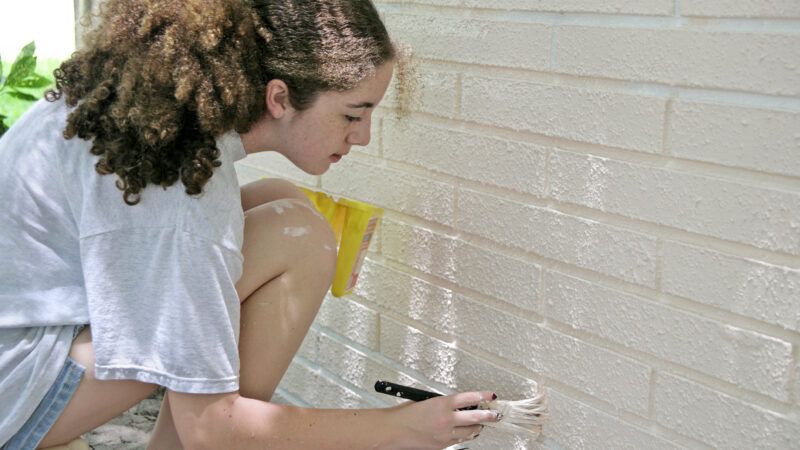Don't Freak Out Over Florida Teen Labor Laws
Laws letting teens work longer hours won't have the disastrous effects critics claim they will.

On July 1st, two Florida laws liberalizing the state's restrictions on labor by 16- and 17-year-olds will go into effect. The first law, House Bill 49 allows older teenagers to work longer hours on days when school isn't in session and allows them to work more than 30 hours a week during the school year with a parent or school superintendent's permission. The second law, House Bill 917, allows 16- and 17-year-olds to work in residential building construction.
While the laws have faced pushback from critics who argue that they place teenagers in danger of neglecting their educations, the new laws will primarily work to bring Florida in line with several other states' regulations on teen labor.
While H.B. 49 expands possible working hours, it does contain some protections for working teenagers, requiring that older teens who work more than 8 hours in one day must be given a 30-minute break after four hours of work.
H.B. 917 allows 16- and 17-year-olds to work in residential construction, but only if they have earned an Occupational Safety and Health Administration (OSHA) certification, are working under direct supervision, and are "not working on any scaffolding, roof, superstructure, or ladder above 6 feet."
Currently, 30 states have no hourly restrictions on work by 16- and 17-year-olds. When it comes to regulations on construction work by teenagers, many states, including California and Texas allow older teenagers to work on at least some construction sites.
However, this hasn't kept critics from framing these changes as disastrous.
"HB 49 reverses long-standing child labor protections and prioritizes employer interests over the education, safety, and well-being of our youth," Florida American Civil Liberties Union Legislative Director Kara Gross wrote in February. "The bill would undo decades of labor protections currently in place that are meant to protect young people in the workforce."
The reality of working teenagers is hardly the horrifying specter that Gross makes it out to be. Letting teenagers work helps them build important skills—like showing up on time, being a team player, and learning how to deal with challenging customers. The income teenagers gain from holding down an after-school or summer job also provides an important sense of independence and self-sufficiency.
"Jobs, in particular, are good for teens. Answering to a grown-up who is not their parent or dealing with a co-worker whom they may not like—those are experiences that can build a new skill set," Anna Nordberg wrote in The Washington Post in 2022."Plus, to state the obvious, if it's a paid job, they make money."
Further, adults who worked as teens tend to earn more as adults when compared to nonworking peers. A 2014 study found that "for a young adult in high school at the turn of the millennium, 20 hours per week of part-time work in their senior year resulted in annual earnings that were 20 percent higher 6-9 years after graduation, as compared to their fellow students who didn't work."


Show Comments (28)